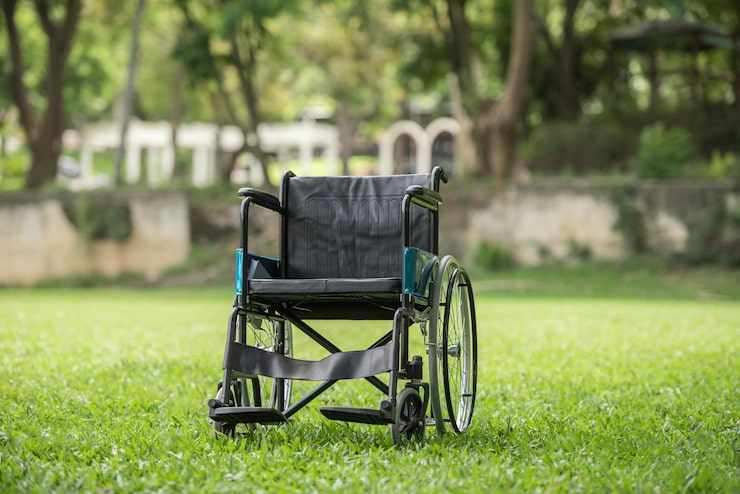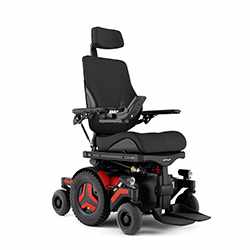
Mobility plays a vital role in maintaining independence and quality of life for individuals with disabilities or limited mobility. Selecting the right wheelchair is more than just a medical necessity—it’s about comfort, lifestyle, and freedom. Today, wheelchairs are designed with advanced features that support posture, reduce strain, and enhance overall usability. Whether you are choosing for yourself or a loved one, understanding the options available can make a significant difference. If you’re exploring options, a Custom Wheelchair could be the perfect solution for maximizing comfort and mobility.
Why Customization Matters
Every individual has unique needs, and no single wheelchair design fits all. Customization allows for adjustments in seat width, cushion type, frame structure, and wheel size. These modifications ensure users get proper support, improved posture, and less risk of developing pressure sores. For someone who spends extended hours in their wheelchair, even small changes in design can drastically improve daily comfort. Moreover, customization can cater to lifestyle preferences, such as portability for travel or durability for outdoor use.
Types of Wheelchairs
Wheelchairs come in various designs, each offering specific advantages. Understanding the main categories helps narrow down the right choice.
Manual Wheelchairs: Lightweight and easy to transport, ideal for individuals who can propel themselves or have a caregiver to assist.
Transport Wheelchairs: Designed for short-term use, these are compact and mostly pushed by caregivers.
Tilt and Recline Wheelchairs: These provide pressure relief and added comfort, suitable for individuals who need frequent position changes.
Electric Wheelchairs: Offering powered movement, these wheelchairs are perfect for those with limited upper body strength.
Among these, custom models stand out by combining the necessary features of each type to meet individual needs.
Features to Consider When Choosing a Wheelchair
When selecting a wheelchair, several factors should be prioritized to ensure both comfort and functionality.
Seat Comfort: The seat cushion plays a crucial role in preventing discomfort. Memory foam or gel cushions are often recommended.
Frame Material: Lightweight aluminium frames are portable, while steel frames provide durability.
Adjustability: Height, footrests, and armrests should be adjustable for better support.
Wheel Type: Larger rear wheels provide stability and smoother rides outdoors, while smaller wheels are easier to maneuver indoors.
Ease of Transport: Foldable models make travel more convenient.
These features ensure that the wheelchair complements both medical requirements and lifestyle needs.
The Role of Technology in Modern Wheelchairs
Today’s wheelchairs are equipped with cutting-edge technology to improve mobility and safety. Some models include joystick controls, obstacle detection, and even smart integration for easier maneuverability. For users who rely heavily on independence, a Power Wheelchair can provide seamless mobility with minimal physical effort. Advanced battery systems also allow extended travel ranges, making them ideal for outdoor activities and long-distance use.
Health Benefits of the Right Wheelchair
The correct wheelchair not only enhances mobility but also contributes to long-term health. Poorly fitted wheelchairs may cause back pain, poor circulation, and muscle strain. Conversely, a properly selected wheelchair can:
Support spinal alignment
Reduce the risk of pressure ulcers
Improve blood circulation
Encourage better posture
Reduce fatigue
This makes the selection process critical for both daily comfort and long-term wellness.
Cost vs. Value: Making a Worthwhile Investment
While custom and powered wheelchairs may seem costly upfront, they are an investment in quality of life. A standard wheelchair might be less expensive but could lack the features necessary for long-term comfort. Insurance or healthcare programs may cover part of the cost if deemed medically necessary, so it’s worth exploring coverage options. The goal should always be to balance affordability with essential features to maximize both mobility and comfort.
Practical Tips for Buyers
Consult a Specialist: Work with healthcare providers or occupational therapists for professional guidance.
Test Before Buying: If possible, test different models to evaluate comfort and ease of movement.
Think About Lifestyle: Consider daily routines, whether indoors, outdoors, or frequent travel.
Plan for the Future: Choose a model that can adapt to changing health needs over time.
Check Warranty and Service: Ensure maintenance and support are easily available.
These steps help avoid costly mistakes and ensure a smart, long-term purchase.
Conclusion
Choosing the right wheelchair is a decision that impacts independence, health, and quality of life. From manual to electric designs, the options are vast, but customization ensures that each user finds a model tailored to their needs. Whether considering a lightweight model for travel or a powered design for advanced mobility, prioritizing comfort, support, and usability is essential. A well-selected wheelchair is more than a piece of equipment—it is a gateway to freedom, independence, and improved daily living. By carefully evaluating features, types, and long-term benefits, individuals and families can make an informed decision that enhances mobility and comfort for years to come.








Write a comment ...